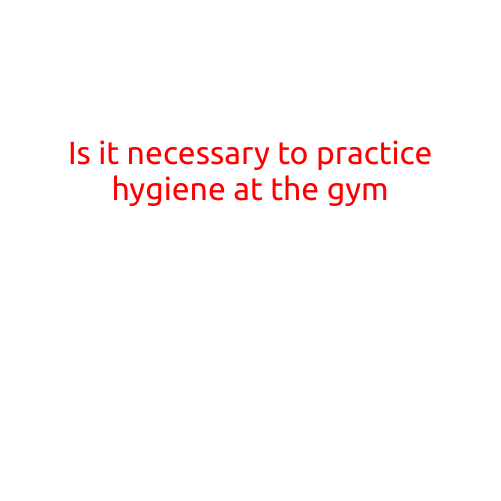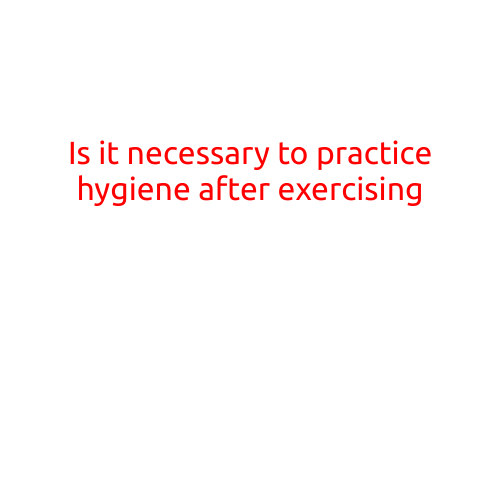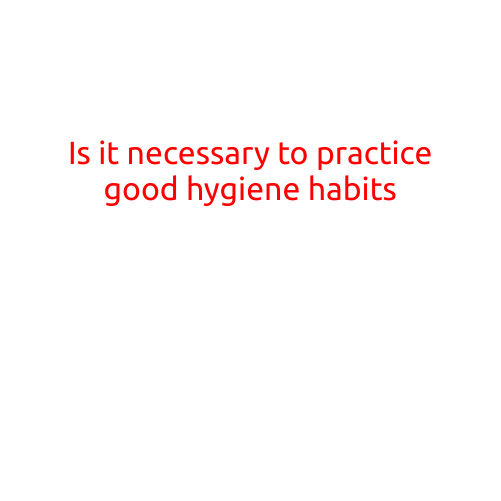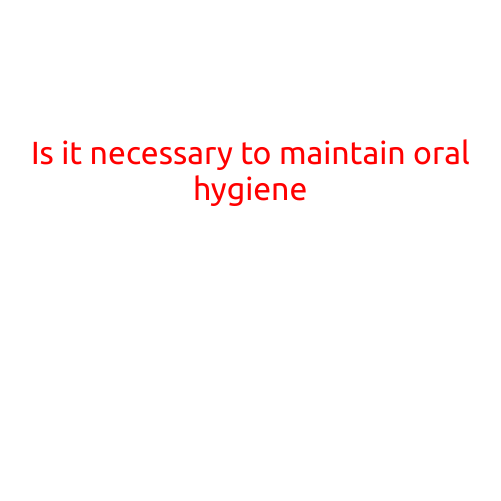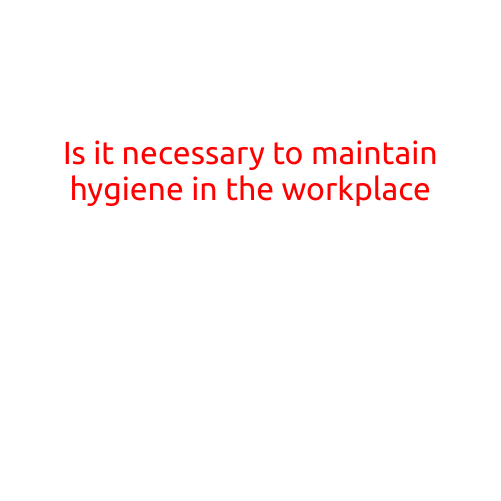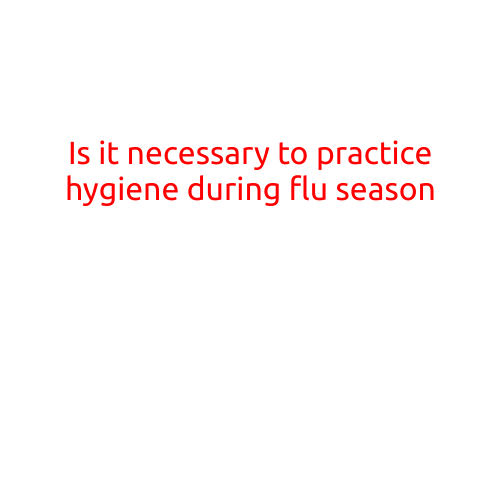
Is it Necessary to Practice Hygiene during Flu Season?
The flu season is a critical period when the risk of contracting the influenza virus is higher due to the increase in viral transmission. As the flu virus spreads easily from person to person, it’s essential to practice good hygiene to protect oneself and others from getting infected. But, is it necessary to practice hygiene during flu season? Let’s dive into the importance of hygiene practices during this period.
Why Hygiene is Crucial during Flu Season
The flu virus spreads mainly through airborne transmission, through contact with contaminated surfaces, and by close contact with an infected person. Therefore, practicing good hygiene is vital to reduce the spread of the virus. Here are some reasons why hygiene is crucial during flu season:
- Reduces Transmission: Washing your hands frequently, especially after coughing or sneezing, reduces the transmission of the virus. This simple act helps prevent the spread of the virus from one person to another.
- Protects Vulnerable Groups: Good hygiene practices are especially important for vulnerable groups, such as the young, elderly, and people with compromised immune systems. These individuals are more susceptible to flu complications, and hygiene practices can help minimize their risk of exposure.
- Reduces Absence from Work or School: By practicing good hygiene, you can reduce the risk of getting sick and taking time off from work or school. This, in turn, can reduce absenteeism and minimize the impact of flu on daily life.
- Prevents Flu Complications: Certain hygiene practices, such as getting enough sleep and staying physically active, can also help boost your immune system, reducing the risk of developing serious flu complications, such as pneumonia.
Simple Hygiene Practices to Follow
So, what are the simple hygiene practices you can follow during flu season? Here are some effective tips:
- Wash Your Hands: Wash your hands frequently with soap and water for at least 20 seconds, especially after coughing or sneezing, before eating, and after blowing your nose.
- Use Sanitizer: If soap and water are not available, use hand sanitizer that contains at least 60% alcohol.
- Cough and Sneeze Properly: Cough and sneeze into a tissue or your elbow, rather than your hands, to prevent the spread of the virus.
- Clean and Disinfect: Clean and disinfect surfaces, such as doorknobs, light switches, and countertops, regularly to reduce the spread of the virus.
- Stay Home When Sick: If you’re experiencing flu-like symptoms, stay home from work or school to prevent spreading the virus to others.
Conclusion
In conclusion, practicing good hygiene during flu season is crucial to protecting oneself and others from getting infected. By following simple hygiene practices, such as washing your hands frequently, using sanitizer, coughing and sneezing properly, cleaning and disinfecting, and staying home when sick, you can reduce the transmission of the flu virus and minimize the impact of flu on daily life. Remember, good hygiene is key to a healthy and happy winter season!
